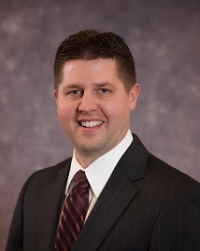Deep Brain Stimulation
The deep brain stimulation (DBS) program partnership between Noran Neurology, Metropolitan Neurosurgery, and Abbott Northwestern Hospital is one of the top programs of its kind in the state of Minnesota. We offer a collaborative approach to serving patients, highly accessible services, and a supportive care coordinator who guides patients through every step of the DBS journey.
What is deep brain stimulation?
Deep brain stimulation (DBS) is a surgical procedure that is used to help control movement symptoms of Parkinson’s, essential tremor, and other movement disorders. In particular, it can help with tremor (shaking), slowed movement (bradykinesia), and stiffness (rigidity). When medications aren’t as effective as they used to be and your symptoms make everyday life a challenge, you and your doctor may consider DBS surgery.
DBS uses a small, pacemaker-like device, placed under the skin of the chest, to send electronic signals to an area in the brain that controls movement. To give you relief, these signals block some of the brain messages that cause the movement symptoms of Parkinson’s. Each patient’s DBS system is programmed specifically to meet their individual needs.
In this procedure, a thin wire is placed in a specific part of the brain. The procedure allows a neurosurgeon to place electrodes on both sides of the brain in the same operation. A battery is implanted right beneath the skin of the chest and acts as a pacemaker for the brain. After the DBS device is implanted, the wire from the brain is connected to a wire that runs under the skin to the battery in the chest.
What conditions can be treated by DBS?
Deep brain stimulation can treat symptoms of the following movement disorders:
Parkinson’s disease
Tremor, slowness and stiffness
Essential tremor
Tremor in the hands and arms and can be effective in treating head tremor
Dystonia
Abnormal contractions in the body
When Should I Consider DBS?
The right time for DBS is when your medications still work, but not as well as they used to.
Watch for these signs that your medications are not working as well as they used to:
- You have movement symptoms like tremor and stiffness for more hours a day.
- After you take a dose, you wait longer for your medications to work.
- The medications' effects wear off between doses.
- You have to take medications more often, including during the night.
- You need a higher dose to get the same effect.
- Side effects of your medications are becoming a problem for you.
Let your doctor know anytime you notice a change in your condition or symptoms. They will help determine if your treatment needs to be adjusted, or if there is something else going on.
Deep Brain Stimulation Program
If you and your doctor have decided that DBS may be the best next step for you, you're probably wondering what to expect. As you begin the process of determining whether you are a candidate for DBS, you can count on the Noran Neurology program and partners to offer:
- Dedicated DBS staff
- Bilateral DBS surgery
- Flexible locations
- Post-surgery therapy services
- Support for patients and families
- Education
Deep Brain Stimulation Steps
- Neurology Exam to determine if you are a candidate. Your neurologist will evaluate you based on a number of factors to see if you are a candidate for DBS. This multi-part evaluation will include a neuropsychological evaluation, and neurological exams of your movements both on and off medication (On/Off Testing).
- Surgical consult and preparation for surgery. Your doctor will create images and maps of your brain to help guide the placement of leads during the surgery. You will have a surgical consult with the neurosurgeon and an MRI or CT scan to capture images of your brain.
- Surgery to place the system. There are two parts to the DBS surgery: implanting very thin wires (leads) in the brain and placing the pacemaker-like device, called the neurostimulator, under the skin of the chest. The two parts may be done on the same day, or two different days.
- Programming the stimulation settings. A few weeks later, your neurologist will turn on the neurostimulator and adjust the stimulation to best control your symptoms while minimizing side effects. It will take a few programming sessions to find the stimulation levels that work best for you. You'll have follow-up visits to check your results and adjust as needed. These appointments are key to getting the results you want over time.
- Checkups and ongoing care. Although you will return to your referring doctor to continue managing your primary and/or neurological care, it will also be important to attend all of your checkups with the neurologist who manages your DBS therapy. This neurologist will:
- Make sure that your DBS system is working properly.
- Adjust your stimulation to best control your symptoms.
- Check the battery of your neurostimulator to see if you will soon need a device replacement.
DBS Care Team

Dr. Eleanor Orehek
Movement Disorder Specialist
Noran Neurology
Patient Testimonial
Fred Manning, a patient of Dr. Eleanor Orehek, began the DBS process at the end of 2020 and completed his surgery and device programming at the beginning of 2021. Watch as he discusses his first hand experience with Deep Brain Stimulation surgery (DBS) and shares how it has changed his life.
Educational Events Featuring DBS
Past Events
If you are interested in hearing more from Dr. Orehek and Dr. Nelson, you can watch video or listen to an audio recording from a previous presentation here. Events are held a few times a year, so watch for future events as they are scheduled.
Listen to Audio from October 30, 2018 DBS Program
Watch recording of our most recent Nov. 17, 2022 Virtual DBS Program below.
Here is a PowerPoint Slide Deck:
DBS Presentation Slides
Questions?
Please call 612.879.1502 to speak to Dr. Orehek's Care Team.
Additional Resources
American Parkinson Disease Association (keyword: DBS)
Parkinson's Foundation
Deep Brain Stimulation - Allina Health
